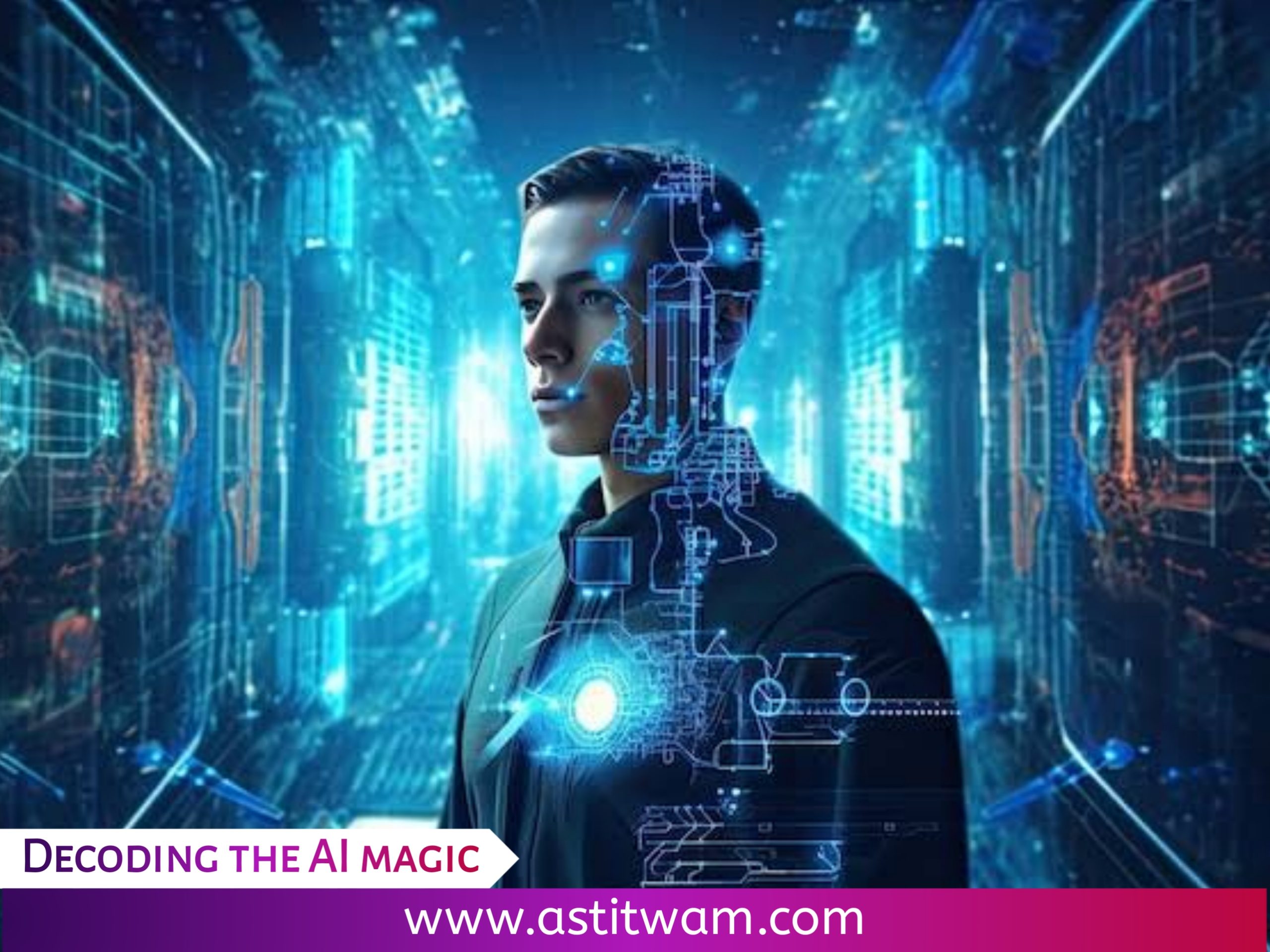Decoding the AI Magic: Unraveling Tech’s Next Big Game Changer

Table of Contents
Introduction
In the realm of technology, a new magic is taking center stage—Artificial Intelligence (AI). This phenomenon has captivated minds and reshaped industries, promising to be the next big game changer. In this article, we delve into the intricate world of AI, unraveling its potential, applications, and the transformative impact it holds for the future of technology.
Unveiling the AI Enigma
Understanding Artificial Intelligence
AI is the science of creating machines that can perform tasks requiring human-like intelligence. From data analysis to decision-making, AI mimics cognitive functions, transforming the possibilities of technology.
The Journey So Far
AI’s journey began decades ago, with key milestones such as the Turing Test and the advent of machine learning. Today, AI permeates our lives, from virtual assistants to autonomous vehicles.
AI’s Impact on Diverse Industries
Healthcare Revolution
AI is revolutionizing healthcare with accurate diagnostics, drug discovery, and personalized treatment plans. The fusion of AI and medical expertise is saving lives and transforming patient care.
Finance Reinvented
In the financial sector, AI-powered algorithms predict market trends, optimize trading, and enhance risk assessment. The result? Improved investment strategies and informed decision-making.
Manufacturing 4.0
AI is ushering in the era of Industry 4.0, where smart factories utilize AI-driven automation and predictive maintenance to optimize production processes and reduce downtime.
The Power of Machine Learning

Machine Learning Unveiled
Machine Learning, a subset of AI, empowers machines to learn from data and improve their performance over time. The more data they process, the smarter they become.
Deep Learning’s Marvels
Deep Learning, a sophisticated branch of ML, mimics the human brain’s neural networks. It excels in image recognition, natural language processing, and even creative endeavors like art generation.
AI’s Role in Automation
The Automation Revolution
AI-driven automation is transforming industries by handling repetitive tasks with precision and speed. From logistics to customer service, machines are taking over the mundane.
Autonomous Vehicles: Driving Change
AI is at the heart of autonomous vehicles, revolutionizing transportation. From self-driving cars to drones, AI is enhancing safety, efficiency, and convenience.
Challenges and Ethical Considerations
Bias in AI Systems
AI systems are not immune to biases present in their training data. Ensuring fairness and accountability is paramount to prevent discriminatory outcomes.
Privacy and Security Concerns
As AI processes vast amounts of data, safeguarding user privacy and preventing data breaches become crucial challenges.
The Future Landscape
Creativity Amplified
AI-generated art, music, and literature challenge the boundaries of human creativity, blurring the lines between human and machine ingenuity.
Human-AI Collaboration
The future is a harmonious coexistence of humans and AI, where each complements the other’s strengths, leading to unparalleled problem-solving and innovation.
Ethical AI Development
Developing ethical AI systems is a moral imperative. Striking the balance between innovation and responsibility will shape AI’s future.
Conclusion
AI is the embodiment of tech’s next big game changer—a transformative force that spans industries, challenges human creativity, and accelerates progress. As we decode the AI magic, we must also navigate its challenges responsibly, ensuring that AI evolves into a tool that amplifies human potential, improves lives, and reshapes the world in ways we’ve only begun to imagine.
FAQs (Frequently Asked Questions)
- How does AI affect job markets? While AI may automate certain tasks, it also creates new job roles in AI development, data analysis, and ethics management.
- Can AI replace human creativity entirely? AI can generate creative content, but human creativity remains unparalleled in its depth and complexity.
- What safeguards are in place to prevent AI biases? Researchers are working on techniques to identify and mitigate biases in AI algorithms, ensuring fair and transparent outcomes.
- How is AI impacting education? AI-powered tools are personalizing learning experiences, offering adaptive curricula and targeted interventions for students.
- What is the role of governments in regulating AI? Governments are working to establish regulations that ensure the responsible development and deployment of AI technologies.




